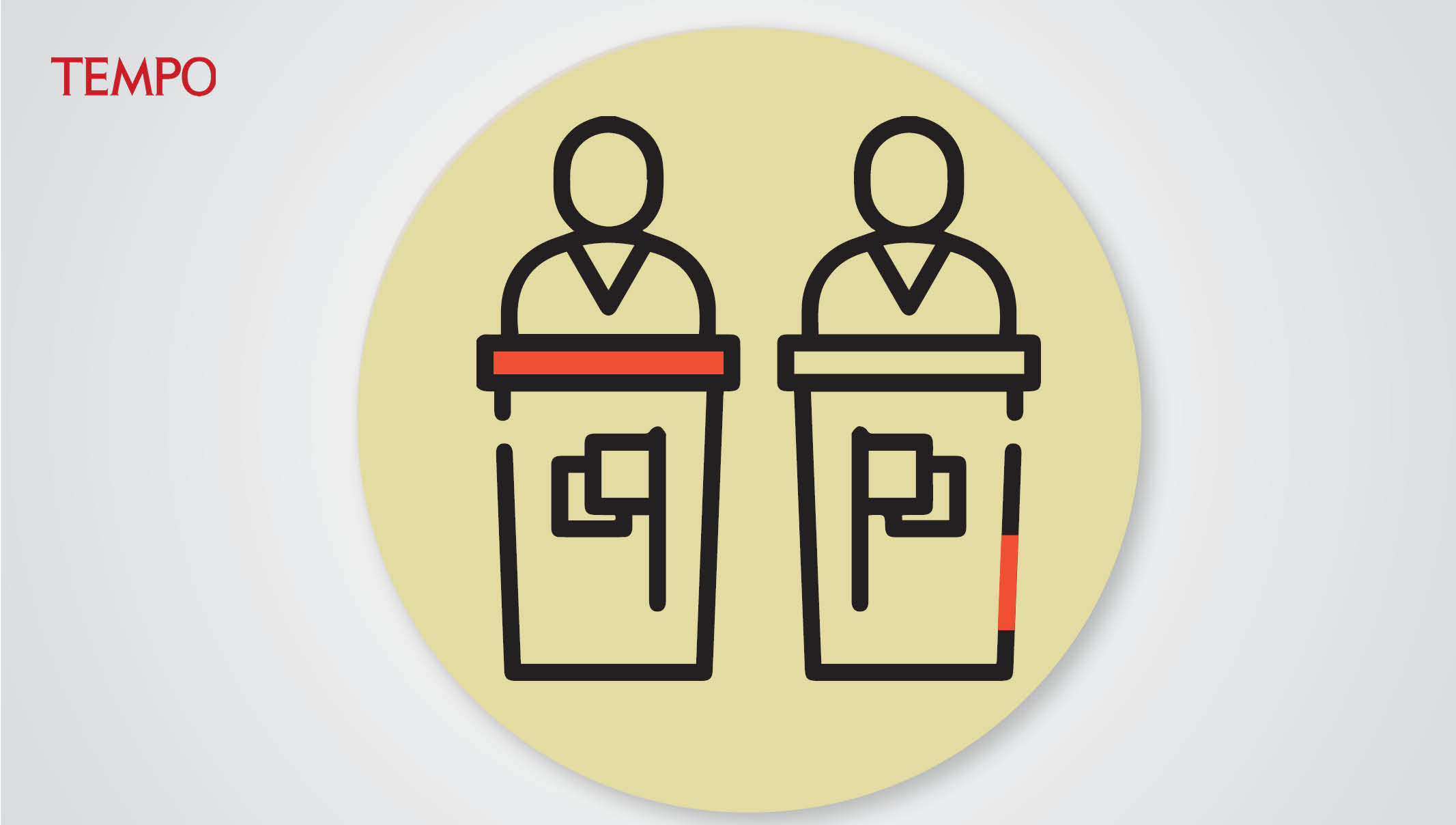The Demagogic Campaigns of the Presidential Candidates
The presidential and vice-presidential candidates are relying entirely on gimmicks to exploit the emotions of the people. This moves the campaign away from substantive discussions.
Tempo
January 8, 2024

THE general election campaign should be an opportunity for presidential and vice-presidential candidates to provide political education for voters. But in recent days, the political elites have chosen to force-feed the people with dancing gimmicks and meaningless jargon rather than discussing their programs in order to stimulate discourse and criticism.
The three presidential and vice-presidential pairings are employing tricks to attract the attention of voters, especially the young voters who constitute 52 percent of the total national electorate. Anies Baswedan and Muhaimin Iskandar are using the jargon ‘slepet’, meaning “crack the whip” and are playing around on TikTok, while Prabowo Subianto and Gibran Rakabuming Raka are portraying themselves as a likeable pair with their ‘gemoy’ (adorable) dancing and use of artificial intelligence (AI). Meanwhile, Ganjar Pranowo and Mahfud Md. are using the slogan ‘sat-set’, meaning swift and adroit.
The use of gimmicks in the campaign shows that the candidates are demagogues. Demagogic leaders are adept at using rhetoric to provoke and manipulate public sentiment in order to gain power. Campaign intrigues and provocations are used by demagogic leaders to cover up their own shortcomings in dealing with the fundamental problems faced by the people.
Demagogic leaders are also fond of inciting hatred and launching personal attacks on their rivals. There have already been signs of this in the debates and the campaign. One instance was Prabowo’s use of a crude Javanese term, “ndasmu etik” (ethics, my foot), when responding to a statement made by Anies during a presidential candidate debate discussing the ruling by the Constitutional Court allowing Gibran to run for the vice-presidency despite initially being too young to qualify.
For demagogues, it is more important to create a manipulative narrative to garner sympathy than to put forward rational evidence. We still remember the boast from the Muhaimin team that it would provide free gasoline if they won the presidential election. Then there was the promise from Prabowo and Gibran for free lunches at an annual cost of more than Rp400 trillion. These promises make no sense if the funding for these programs is unclear and if they would place a significant burden on state finances.
The presidential and vice-presidential candidates are using demagoguery to distance their words from substance and to garner popularity. They are ignoring proposals and avoiding speaking on strategic issues such as the environment, pluralism and anti-corruption. This means that the people are unable to judge the ability of their leadership to address major problems. The priority for all of the candidates is simply being attractive and using meaningless slogans.
The use of symbols, gimmicks and jargon like dancing and cartoons produced by AI is easily understood by voters, especially the youth, because they are not ideological voters. Their decisions about whom to vote for will be driven by who they like, and the viral content created by the demagogues.
This voter behavior based on ‘likes’ has been noted in a number of surveys. In October 2023, polling organization Charta Politika found that the reasons why many respondents planned to vote for Anies, Prabowo or Ganjar were simply that they were polite, religious, or even good-looking. And a survey by the Polling Institute found that the determining factor for many voters in the 2024 election was simply that they liked the candidates.
Force-feeding voters with gimmicks will not empower the people to choose their leaders. In the remaining weeks of the campaign, the presidential and vice-presidential candidates should stop being demagogues—con men who try to give the impression of working for the people but who in fact do everything they can in the interests of achieving power for themselves.

